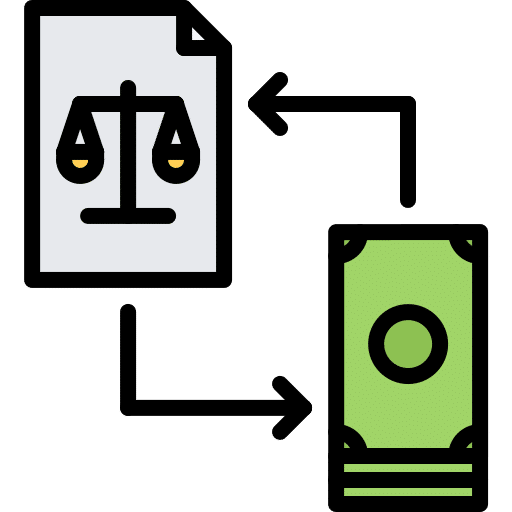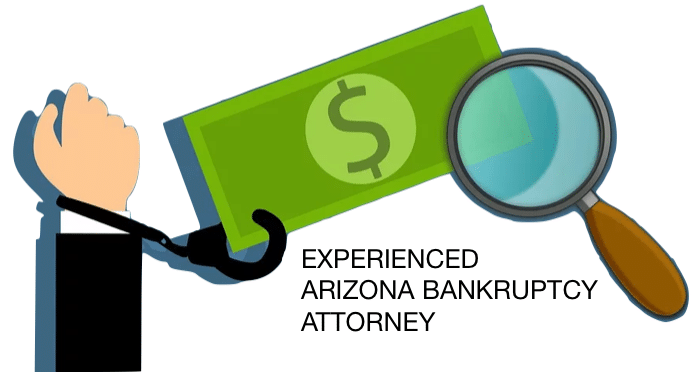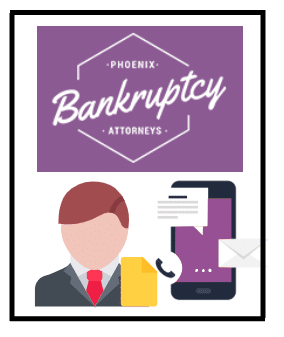BANKRUPTCY MYTHS: It’s hard to file for bankruptcy.
While a bankruptcy petition is a daunting document that can be over 60 pages long, the documents your attorney will need from you to file your petition is much more reasonable. Certain factors, like being married or recently divorced, only receiving social security income, and being involved in a lawsuit may cause you to need to turn over more documents to your attorney and bankruptcy trustee. However, if you have important documents available such as your tax returns and six months’ of paystubs, the process will go much easier.
BANKRUPTCY MYTHS: Only the financially irresponsible file bankruptcy.
Some people do file bankruptcy because of financial irresponsibility. If your first question during a bankruptcy consultation is, “How soon can I file again?”, you might be one of those people. However, most of the clients we see are considering bankruptcy because of uncontrollable life circumstances or understandable but bad judgments. One of the most common reasons we see people file for bankruptcy is because of medical bills. Serious illnesses are not only expensive, but can cause you to miss work.
BANKRUPTCY MYTHS: Married couples will both have to file bankruptcy.
This simply isn’t true. If you are married, you still have the option of filing singly. If you accrued most of your debts before you got married, and your spouse doesn’t have much debt on their own, their only involvement in your bankruptcy will be supplying information, such as paystubs. Their income will still count towards yours for the purposes of income qualification for a Chapter 7.
BANKRUPTCY MYTHS: It’s too late to file bankruptcy if you’ve been sued.
 This is a false statement. One of the best times to file for bankruptcy is after you have been sued. No matter where in the process of a law suit a creditor may be against you, filing chapter 7 or chapter 13 bankruptcy can give you relief from a law suit, a sheriff’s auction, a judgement, or a wage garnishment.
This is a false statement. One of the best times to file for bankruptcy is after you have been sued. No matter where in the process of a law suit a creditor may be against you, filing chapter 7 or chapter 13 bankruptcy can give you relief from a law suit, a sheriff’s auction, a judgement, or a wage garnishment.Additionally, declaring bankruptcy will stop whatever law suit you have against you for an unpaid debt. Once you file for bankruptcy protection an “Automatic Stay” goes into play. This protection under Section 362 of the Bankruptcy Code is a very powerful provision. Thus, the Automatic Stay makes all collection activities to immediately cease.
BANKRUPTCY MYTHS: Debt negotiation companies work better than bankruptcy attorneys
This is a myth! Actually, our Phoenix bankruptcy attorneys have found in several cases that most debt negotiation and debt consolidation companies are nothing more than a scam and not beneficial to the lender. Additionally we noticed that many of these companies ended up doing nothing more than completely ruining the credit of those who have used them. Good debt negotiation companies are a rare find.
A lack of regulation is what we believe is the problem with a lot of the Debt Consolidation and Debt Negotiation companies. Conversely, Phoenix bankruptcy attorneys are governed and regulated by Federal Bankruptcy Laws, The Bankruptcy Court, and The Arizona State Bar. These regulatory agencies are in place to protect you the consumer from potential “scam” debt relief companies.
BANKRUPTCY MYTH: I will never be able to buy a home after filing for bankruptcy.
You may have to wait but you will be eligible to buy a house after filing bankruptcy. You will have to wait 2 years after your bankruptcy to qualify for an FHA loan. However, you should still be able to rent immediately after your bankruptcy. Plus, our Phoenix bankruptcy law office can correspond with potential landlords if you have difficulties finding a rental.
A lack of regulation is what we believe is the problem with a lot of the Debt Consolidation and Debt Negotiation companies. Conversely, Phoenix bankruptcy attorneys are governed and regulated by Federal Bankruptcy Laws, The Bankruptcy Court, and The Arizona State Bar. These regulatory agencies are in place to protect you the consumer from potential “scam” debt relief companies.
BANKRUPTCY MYTH: Creditors can still harass you after filing bankruptcy.
Once you retain a bankruptcy attorney, you can inform your creditors and they are no longer able to contact you. In fact, if you retain our Phoenix Bankruptcy Team, give them our phone number and we will talk to them. If you file your bankruptcy before you even have a chance to inform your creditors that you have retained an attorney, you can provide them with your case number. If your creditors continue to harass you, let your attorney know. Under law, possible sanctions can be sought against any creditors who continue to harass you.
BANKRUPTCY MYTH: Credit cards and medical bills aren’t dischargeable in bankruptcy.
 These debts are dischargeable in bankruptcy. Both Medical Debt and Credit Card Debt are some of the most common debts people file bankruptcy to discharge in Arizona. Credit card debt also usually accompanies medical debt as people have no other choice while paying their bills.
These debts are dischargeable in bankruptcy. Both Medical Debt and Credit Card Debt are some of the most common debts people file bankruptcy to discharge in Arizona. Credit card debt also usually accompanies medical debt as people have no other choice while paying their bills.
Therefore, you should only be worried about your credit cards being dischargeable if you began charging luxury purchases in the 90 days before your bankruptcy. Suspicious charges like those create a presumption of fraud. It basically appears to the court that you opened credit cards to buy frivolous things with no intention of ever paying it back. If this is the case, your creditors may be able to appeal to the court to omit these debts from the bankruptcy, leaving you still liable for them.
If you have questions about purchases you are about to make because filing bankruptcy in Arizona is a real possibility, please call our Phoenix debt relief offices today.
Contact Us
File Now … Pay Later!
Phoenix bankruptcy attorneys serving Chapter 7 and Chapter 13 clients in Phoenix and surrounding communities!






